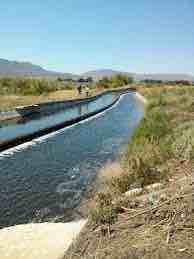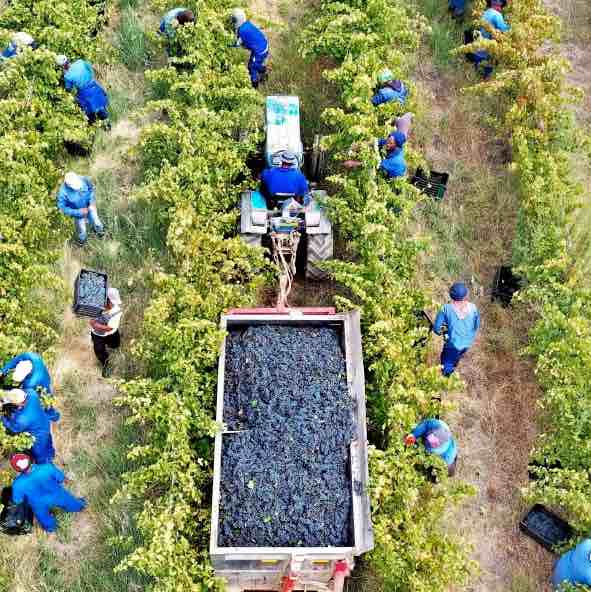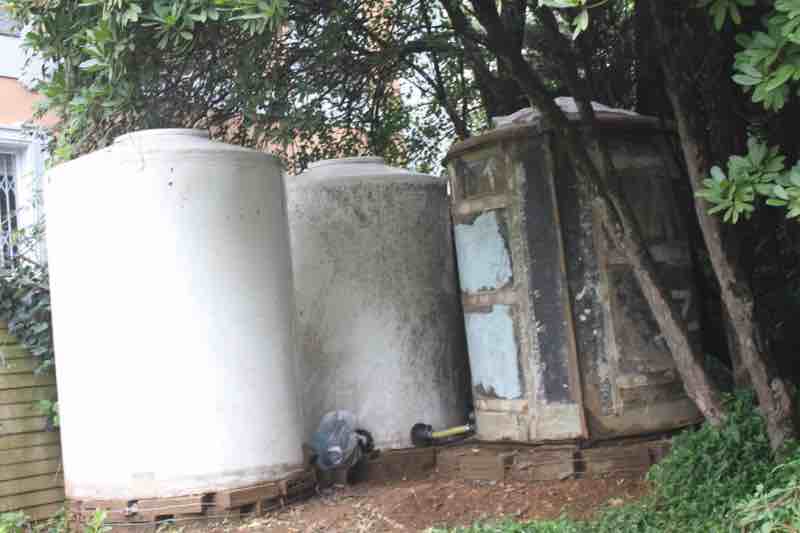| Back to Back Issues Page |
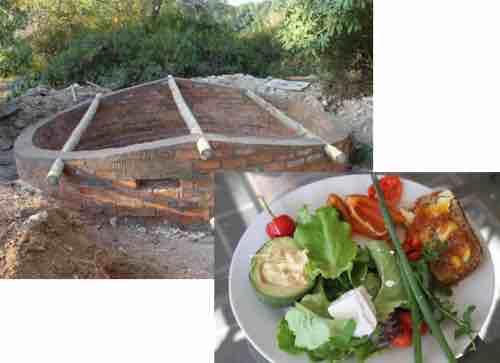 |
|
Should agriculture and industry get priority for water and electricity? January 02, 2023 |
DearShould agriculture and industry get priority for water and electricity?Greetings from Bernard Preston to this our twentieth-first newsletter about creating your own Cyan Zone; greater wellness for both your family and the planet. Our theme this month is that both water and electricity are in short supply; should agriculture and industry be getting priority?
"Cheers to a new year and another chance for us to get it right." - Oprah Winfrey Water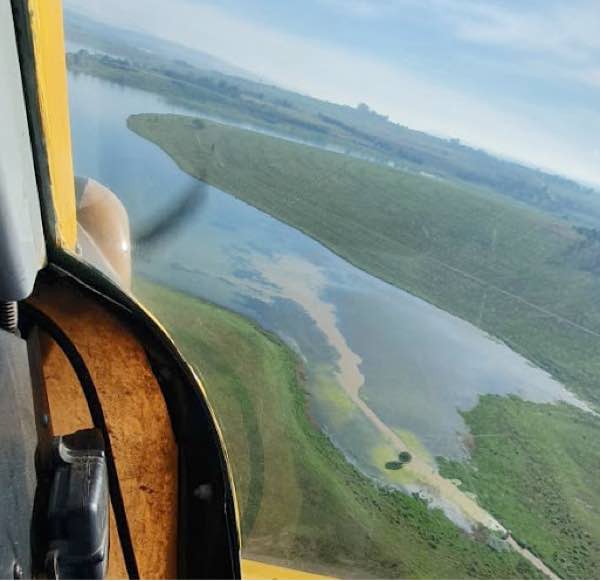
Large dams like Midmar in KZN supply water for agriculture, industry and human consumption; but there simply is not enough in times of drought. And it is increasingly polluted from inadequate treatment of sewage. In the Lower Olifants aqueduct, water is used primarily for agriculture. The dry but fertile parts of South Africa are totally dependent on irrigation for producing both food and exports.
As a direct result of the drought in the Western Cape, for example, the wine industry exports have dropped by a massive 25%. Irrigation schemes like the Olifants were simply unable to supply farmers' needs. It put a huge number of people out of work and loss of foreign exchange to the fiscus. Regaining lost market share has been difficult. Problems compound one another; the C-19 pandemic greatly exacerbated the catastrophe for the grape and wine industry with restaurants the world over closing.
This sad tale was repeated many times over in all other areas of agriculture; wheat, potatoes and vegetable production dropped dramatically causing prices to soar. Many families were pushed over the brink into hunger, malnutrition and even starvation. Permanent stunting of children became a serious problem. stunting-of-children.html Harvest the rainAgriculture is simply not able to harvest and store sufficient water for long periods of drought if much of that from dams and rivers is primarily being used for human consumption.But we city dwellers can do that; we have large rooves from which rain can be harvested and we have the resources to store that water in tanks and underground reservoirs. We should always stress "underground reservoirs;" they are cheaper than tanks and not significantly more difficult to construct. The water is maintained at a much lower temperature; that means less bacterial proliferation.
Massive amounts of water are lost from large dams to evaporation and in leaking conduits; storing the rain in our own gardens not only reduces runoff in times of flooding but also there are zero losses in the reticulation. It is far more efficient than relying on distant reservoirs that increasingly are unable to supply all our needs. Very few new dams are being constructed worldwide; they are simply not economically viable. For home consumption we will in the future be forced to harvest and store our own water. That's not a bad thing; it is far cleaner too, unpolluted by plastic microparticles, chemicals and bacteria. Mineral deficienciesHumans get about 10% of their minerals from their drinking water. Research needs to be done on whether using the rain will have a detrimental effect on human health. Will it be necessary to compensate for this loss?Again this is a problem compounded by the modern industrial diet where many foodstuffs have been stripped of their nutrients. In all probability it will not be a problem for those enjoying whole foods; the very people most likely to be concerned about the planet and harvesting the rain. ElectricityIn similar vein very large smelting companies, for example simply could not generate sufficient power for their needs from solar power. Yet during long periods of load shedding, Eskom is obliged to give many of them priority; they can't just shut down for a few hours.Homeowners are faced with going green and putting up solar panels; and where appropriate wind-generators and water turbines. Or they will be grinding their teeth and going without. Depression and anxietySouth Africans are developing serious psychoses as a result of these shortages. We can blame government but at this point in time there is no likelihood of any improvement in the situation, even if a new party is elected to rule in 2024.The combined effects of serious neglect in planning and maintenance on the one hand and climate change on the other are affecting many countries with power outages, water shortages and the soaring costs of both utilities.
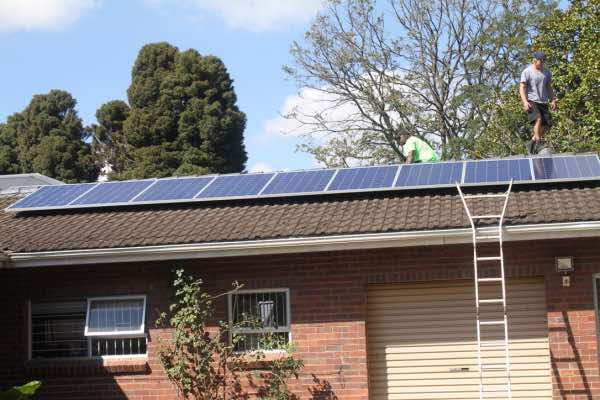
“Farmers and wineries have invested in generators and green energy on a large scale and ongoing discussions with Eskom are taking place as producers pre-plan for the 2023 harvest.” - Rico Basson, Vinpro MD Day-in-the-life-of-solar-geek-Bernard-Preston.html Whether you are in agriculture or industry many challenges lie ahead. It's time for homeowners also to read the writing on the wall. The message is clear; start harvesting and storing the abundance that falls from the heavens or face serious, depressing shortages in the future. In mid-2023 Montevideo, a city of over a million souls has only one week of drinking water left. Industry and agriculture come first. “Because so much water is used in agriculture and industry, the amount for personal use and nature is obviously very limited.” - Mariana Meerhoff, environmentalist, Uruguay "And it never failed that during the dry years the people forgot about the rich periods; and during the rainy seasons they lost all memory of the droughts. It was always that way." — JOHN STEINBECK Whilst we are in the midst of a series of fearfully wet years, let us not forget that the next drought is just around the corner. It's the age old Biblical story of the fat and lean years; remorselessly the one period follows the other.
"A new year is a clean slate, a chance to suck in your breath, decide all is not lost and give yourself another chance." — SARAH OVERSTREET I wish you well as you endeavour to build your own little Cyan Zone where wellness of family and the planet remain paramount. Blue and green light when mixed produce cyan.
What is a cyan zone? "I don't like pain and I am not fond of being sick. I have no desire to be continually consulting doctors and the pharmacist. I am immensely grateful that our passion for healthy living means we take no medication whatsoever. Each year has been better than the last, though that will certainly not continue for ever; we look forward to a great many more New Years." - Bernard Preston We wish you too a happy and healthy 2023. To sum upInvesting your money in your own home is a far safer bet than the financial markets; the trend in your portfolio tracks only upwards. From the first month you will see the benefits in your cash flow; within five years you will have free electricity and pristine water for ever. It's worth a thought.
Dr MardyPS. If you don't subscribe to Dr Mardy's weekly newsletter you're missing out on a gem. Google him. This is his quote for today: "Never let your sense of morals get in the way of doing what's right."
— Isaac Asimov
Should agriculture and industry get priority for water and electricity?Most of us would probably reply with an emphatic NO. Yet the daily grid failure that South Africa is facing would suggest that this may well become a choice over which we have no control.Like Hobson's Choice we may well find that we have no choice. Harvest the rain and sunshine or go without.
Next monthNext month we will look at the benefits of milling your own corn, or maize as we call it in South Africa.My apologies, I never got to milling; for next month.
Till next month, Bernie
Create a cyan zone at your homeClick here to return to the home page and subscribe to this newsletter, if you have not already. Care for the world, look after your family.It is simple to deregister if you later find it boring or irrelevant. Don't spam, but please forward to a few selected friends who you think might be interested in sitting under the trees they once planted, sipping tea and watching the great-grandchildren growing up; and still able to take long walks.
x Nature is calling x Bake your own sourdough bread x Alternative types of water storage x Wear your clothes out x Comfort foods x Create a bee-friendly environment x Go to bed slightly hungry x Keep bees x Blue zone folk are religious x Reduce plastic waste x Family is important x What can go in compost? x Grow broad beans for longevity x Harvest and store sunshine x Blue zone exercise x Harvest and store your rainwater x Create a cyan zone at your home |
| Back to Back Issues Page |
